- Home
- David Lubar
Strikeout of the Bleacher Weenies Page 4
Strikeout of the Bleacher Weenies Read online
Page 4
Part of me was dreading the next game. All the yelling and bad sportsmanship took away from our fun. And, as bad as it was to see an adult yell and scream at a coach or umpire, it was really awful to see one yell at a kid. Some of the Bleacher Weenies not only had no problem screaming at their own offspring in public but they also didn’t seem to realize how bad it was to scream at someone else’s kid.
So, yeah, there was dread. But there was also a small part of me that enjoyed seeing a grown-up make a fool of himself. Or herself. I’m not proud of that. But I’m human.
Nolan Gruber was the Aztecs’ pitcher. Horse-head Shaw was the catcher. His nickname was, if anything, an understatement.
Before the game, I studied the people in the bleachers, trying to pick out Nolan’s and Horse-head’s fathers. I was pretty sure they were the guys with the biggest, rudest signs, sitting side by side at the top of the bleachers. One had a Yankees shirt on. The other wore a Mets shirt.
“Wait,” I said to Doug when we took our seats on the bench. Something had been tickling my mind after seeing all the Aztecs signs and shirts. “I thought we weren’t supposed to have teams named after groups of people.”
“Their coach is a jerk,” Doug said, motioning toward the Aztecs’ bench with his head. “But he donates a lot of money to the league. He fought for the name, and they crumpled.”
This is definitely going to be interesting, I thought when the umpire yelled, “Play ball!”
That was also an understatement.
Here’s one more understatement: Nolan wasn’t having a good first inning. He kept missing the strike zone, and walked enough of us that we were up three to nothing before even getting an out.
Then, the two guys from the top of the Aztecs’ bleachers slinked over behind the backstop. On Nolan’s first pitch to Adam, the guy in the Yankees shirt yelled “Good one!” even though it was clearly a ball. The umpire didn’t fall for it that time. Or the next, when the Mets guy yelled, “Nice pitch! Right over the plate!” By then, three other Aztecs parents had joined the party. The crowd must have swayed the ump, or distracted him, because he called the third and fourth pitches strikes, even though they were wide.
“That’s cheating,” Gordy said. “Umps try to be neutral, but the influence of the mob is a factor.” He smacked the book sitting next to him: Extraordinary Popular Delusions and the Madness of Crowds.
So the count was two and two, and Adam was rattled. He swung at the next pitch, even though it was almost low enough to bounce off the plate.
Strike three.
I caught coach Parker’s eye. He shrugged. “Nothing I can do,” he said.
As well-behaved as the parents normally were on our side, they were quickly dragged down to the level of the Bleacher Weenies. By the third inning, half the parents on each side were crowded behind the backstop. One group was screaming “Good pitch!” while the other yelled stuff like, “Good eye, batter!” or “That’s a ball!”
At the bottom of the last inning, we still had only three runs, while the Aztecs had scored five.
“This will not end well,” Gordy said as he walked up to the plate.
He was more right than he realized. Nolan was getting so rattled, he clipped Gordy on the shoulder with a pitch. Gordy was hurt, but he shook it off and took first. Willy hit a line drive that got him safely on base. I was up next. I tried to shut out all the shouting. I also tried to stay alert for wild pitches.
The first pitch was low and outside, but not super low and not super outside. I like them that way. And I liked the idea of putting an end to the game before one of the parents took a swing at another and started a riot.
I clocked the ball, smacking it right over the fence.
I might have failed to mention that I’m a pretty good hitter. That, too, is an understatement. As I dropped my bat, I noticed Nolan’s father was glaring at me like he wanted to knock me over the outfield fence. I gave him a shrug and a smile, then rounded the bases.
“I love shallow parabolic arcs,” Gordy said as he took his turn slapping my raised hand after I’d crossed home plate.
That might have been nerd-speak, but I knew enough math to nod and smile.
So we won. But nobody was happy about the way the Bleacher Weenies had acted. The league had an emergency meeting the next evening and passed a rule banning parents from standing behind the backstop.
The next time we played the Aztecs, Nolan’s father brought an air horn, and Horse-head’s father brought a whistle. They blasted their noisemakers whenever anyone on our side was about to swing at a crucial pitch.
That led to another emergency meeting. Air horns and whistles were banned. The league was smart enough to make the ban broad enough to cover “any noisemaking or distracting device.”
The problem is, it’s a small league, so we play each team four or five times. The next time we faced the Aztecs, I made a grab for a sizzler Nolan hit. I didn’t snag it, but I managed to knock it down, then scoop it up and burn one to first. The throw just beat the runner.
The umpire called him out. It was the correct call.
Nolan’s father exploded from the bleachers and ran right onto the field. He started screaming at the umpire. That got him ejected from the field. But on his way out, he walked past third base. He moved so close to me, I could feel the heat from his red face. He pointed a shaking finger at me and yelled, “You’ll get yours!”
The fourth time we played the Aztecs, Nolan hit a double. As he was taking his lead off second, his father yelled something to him. It sounded like, “Here’s your chance.” Nolan nodded, and then he grinned in my direction. I had the feeling he was going to try to take me out when he ran to third. We were the only team that had beaten them so far this year, and I guess I got a lot of the credit, or blame, for that. Which made me a target.
The next batter hit one down the first-base line. Adam scooped it up, tagged first, then threw to me at third. Nolan was charging at me like he had no plans to slide or slow down. I stood my ground.
It was a good throw, just slightly wide. I had to lean to snag it, but I made a tag. Nolan slammed into me. I thought I was braced, but I went flying.
I hit the ground hard.
Really hard.
The ground shouldn’t have been this hard.
I got to my feet, pushing off the hard stones.
I felt a warm breeze blow across my chest. I checked to see if I’d ripped my shirt. I hadn’t ripped it. I’d lost it. My gut clenched as I realized I wasn’t wearing much of anything. I was in elbow pads, knee pads, and some sort of very short shorts.
So was everyone else. My whole team. Everyone wore about as little as I did. Each of us had a slash of red paint across our chest. We were on a field in a stone stadium. The seats were filled with people who were cheering and shouting.
A large ball, twice the size of a soccer ball, whizzed past me.
“Got it,” someone shouted.
It was Mr. Gruber, Nolan’s dad. He smacked the ball in the other direction with his head.
Mr. Gruber?
They were all there. All the worst of the Bleacher Weenies—mostly parents from the Aztecs’ side, but also some bad sports from other teams. They had blue slashes on their chests. We were playing some sort of game against them.
If anyone had a clue why we were here, it would be Gordy. I looked around for him. He spotted me at the same time.
“What’s going on?” I called as I jogged toward him.
Before Gordy could answer, Mr. Gruber knocked him off his feet.
Whatever we were playing, that had to be some kind of foul. I didn’t see any referee. Mr. Gruber kept running. He hit the ball with his elbow. It almost went into a hole in a stone disk at one side of the court. The crowd went wild.
“I don’t like this,” I said when I reached Gordy.
“It’s definitely not a good situation,” he said.
Someone shouted my name. I turned just in time to see Doug give the ball a soli
d whack with his knee, sending it back down the field toward me. Now that I knew what I had to do, it was easy. I deflected the ball with my shoulder, sending it to Alex, who was near the goal. He tried to put it in. But the hole in the stone was really small.
Things got rough. The Bleacher Weenies were bigger and stronger, but we were in a lot better shape, we knew how to play sports, and we understood the value of teamwork.
Still, possession and momentum went back and forth, like a volleyball game where the serving side keeps losing the ball.
I noticed Gordy was standing off to the side, staring at the crowd.
I ran over to him. “You okay?”
“That’s it!” he said. “Amazing!”
“What?” I asked.
He grabbed my arm. “This has to be your doing!”
“How do you know that?” I asked.
“Because it isn’t accurate. These aren’t Aztecs. I know that, but you probably don’t. You sucked us into the wrong version of reality, based on your hazy beliefs and memories. I need to think. I know who they are. I’m just feeling disoriented.…”
Across the field, the Bleacher Weenies almost scored. “We can talk about this later,” I said. I had a feeling we needed to win. The next time I got an opening, I took the ball all the way to the ring. Just when I was about to score, I got tackled from behind.
I sprang back up, ready to shout at Mr. Gruber. But it wasn’t him. It was Gordy.
“What was that for?” I asked. “We were about to win. It would be awesome to beat the Bleacher Weenies.”
“Mayans!” he said. “That’s who they are. Didn’t you learn about them in school?”
I had no idea what he was talking about.
“The ancient Mayans played this game,” he said. “Guess how they celebrated a victory.”
“How?” I asked. I vaguely remembered I was always mixing up the Incas, Mayans, and Aztecs.
“They sacrificed the winners,” he said.
Just as he said that, I saw Mr. Gruber knock down two of our players and score a goal.
“Or maybe it was the losers…” Gordy said. “There’s some debate among the experts.”
The crowd swarmed the field. Gordy’s eyes got wider. “They’re going to cut our heads off! That’s how they did it back then.”
We got separated by the mob. They lifted us red slashers onto their shoulders. They dragged the blue slashers to slabs of rocks right next to the field.
“I guess it is the winners,” Gordy shouted.
Men were standing by each of the Bleacher Weenies, holding knives.
One of them raised his knife right above Mr. Gruber’s heart. It looked like the decapitation part wasn’t right, either. Not that it made all that much difference in the long run.
“No!” I shouted. He might be a Bleacher Weenie and a terrible person, but he didn’t deserve to have his heart cut out. A kidney, maybe. But not a heart.
I dived off the shoulders I was perched on, and hit the ground hard, hoping I could save Mr. Gruber.
Someone scrambled over me, trying to get back in contact with third base. I lay where I’d tumbled to a stop, several feet into foul territory but no longer several thousand years from where I belonged.
“Out!” the umpire shouted at Nolan.
I got up from the ground, dizzy. My teammates were clustered around me.
“You okay?” Gordy asked.
“Yeah.” I looked down at my shirt. It was ripped at the neck. The tear ran through the word Phantoms. I was back where I was supposed to be, standing on a baseball field with metal bleachers, not stone steps flanked by statues and sacrificial altars. Maybe I had a concussion.
“Did we?… Were we?…” I stared at Gordy. If it had been something I dreamed while I was knocked out, he wouldn’t know what I was talking about.
“Yeah,” Gordy said. “Mayans.” He pointed at my chest.
I looked down, again. There was a faint slash of red on my chest. It had really happened.
Nolan was screaming at the ump about the call. “He blocked the base! That’s interference! I’m not out!”
I knew someone else who would also start screaming—if he was still alive.
I turned my attention to the bleachers. All the parents we’d played against were back in their seats. They seemed dazed. Several of them were probing their chests, as if feeling for wounds. Nolan’s father, his face red with rage, opened his mouth to yell at the ump. But then his face got pale, as if he suddenly remembered something very disturbing. His eyes grew wide, as if he were staring at a knife plunging toward him. Or staring at the memory of a knife. He closed his mouth. And he sunk down in his seat. His sign dropped from his hands and fluttered to the ground.
“I thought he was going to yell,” Gordy said.
“I don’t think he has the heart for it anymore,” I said. As my words echoed in my ears, I realized how perfect they were.
I guess Gordy realized the same thing. “Too true,” he said. “Hey, you know how this play should be recorded in the score book?” he asked.
“How?”
“A sacrifice,” he said.
We laughed. And then we got back into the game and played our hearts out.
That’s when I knew I loved baseball again.
CAMPING OUT
For a moment, right after she woke, Leandra had no idea where she was, why her bed felt so firm, why her blanket was wrapped so snugly around her body, or why the curtains on her bedroom window weren’t tinted with a glow from the porch light on the house across the street. Her friend Rachel’s parents never remembered to turn off that light. Leandra didn’t mind. The glow provided just enough illumination for her to find her way to the hall if she needed to get a drink of water or use the bathroom in the middle of the night.
As she started to sit up, and felt resistance, Leandra realized the simple explanation for all of her observations—she was camping. Her family and three other families had gone to Cambric Mountain Scenic Campground for a weekend trip. She, Rachel, and two other friends were sharing a tent. Her older brother was in the next tent, with some of his friends. And her parents were in the tent next to that. Her sleeping bag, which she had mistaken for her covers in the brief confusion of her transition to wakefulness, was on top of a small cot.
I wonder what time it is. Leandra reached for her flashlight. She wanted to use the light to check her watch. Then, she remembered that her watch was at home, along with her phone, her tablet, and all her essential electronic entertainment.
We’re going back to nature, her dad had said.
No modern conveniences, her mom said.
The flashlight was the one exception. Leandra was surprised her parents hadn’t insisted on candles or torches. But light of some sort was necessary. The campground was so far from any towns, or even any houses, that there was no light at night other than the stars, the moon, and the campfire.
Clouds had masked the starlight. The campfire had been extinguished at bedtime. A flashlight was essential for safely finding the latrines, which were on a twisting path far enough downhill from the tents that they’d be difficult to locate in the dark.
Since she had no watch to check, there was no point in turning on the flashlight now. Besides, she’d probably wake Rachel, who was a light sleeper.
Not like Bethany, Leandra thought. Bethany snored, and refused to believe it when Leandra and Rachel told her, so they finally recorded her during their last sleepover and played the proof for her the next morning.
She’s not snoring now.
Leandra slowed her own breath and listened. Bethany was silent. So was the fourth tent-mate, Treena. Even Rachel’s occasional nighttime sighs were absent.
Leandra listened hard. She held her breath and focused on finding any sound of life within the tent.
The tent was silent.
She groped for her flashlight and thumbed the switch.
Nothing.
A memory of dim light came to her. Sh
e saw a flashlight slowly dying when she’d checked it right before going to sleep. She’d forgotten to put in new batteries. There seemed no point. She rarely used the latrines at night. She used them as little as possible whenever the family went camping, even during the day.
The silence grew more powerful now that Leandra had no way to dispel the darkness. “Bethany,” she whispered, hoping to rouse her friend, or at least draw her far enough out of deep sleep that she’d move or mutter or show some sign of her presence.
None of that happened.
Leandra unpeeled herself from the sleeping bag and rolled off the cot. She felt her way in the dark, moving leftward until she reached Bethany’s cot. Gently, so as not to startle her friend, she slid her hand to where she hoped Bethany’s shoulder would be.
The cot was empty.
She went to the latrine. That made sense.
Leandra went back to her own cot and lay down. She didn’t bother with the sleeping bag. She wasn’t cold. The night air seemed oddly neutral, embracing her with that temperature that felt like no temperature at all. She turned toward the tent flap and watched for Bethany to return.
I’ll see her light in a minute.
She knew Bethany wouldn’t linger. The woods were a bit scary at night, especially if you were alone. Silence was like fuel for an overimaginative mind. She was surprised Bethany hadn’t wakened her so they could go together. That was one of the rules the girls were supposed to follow, but often broke.
A long time passed.
Leandra groped her way to the other cots and discovered that they, too, were unoccupied.
“Hey!” she called, no longer reluctant to wake someone.
The night swallowed her voice.
She found her way out through the flap. The slightest possible illumination from the sky allowed her to make out the dark presence of the other tents. She didn’t want to startle everyone with a scream—though she very much wanted to stand where she was, scream, and be rescued and comforted. She went to her parents’ tent. There were no sounds.
Inside, there were no parents.
She felt around for a flashlight.
Nothing.
“Mom!”

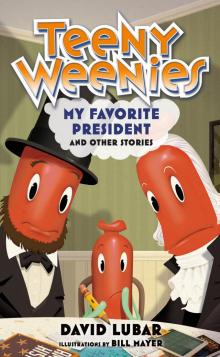 Teeny Weenies: My Favorite President
Teeny Weenies: My Favorite President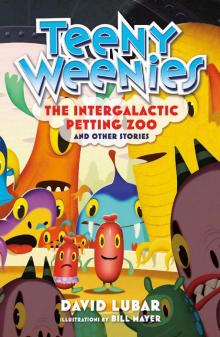 Teeny Weenies: The Intergalactic Petting Zoo
Teeny Weenies: The Intergalactic Petting Zoo Teeny Weenies: The Eighth Octopus
Teeny Weenies: The Eighth Octopus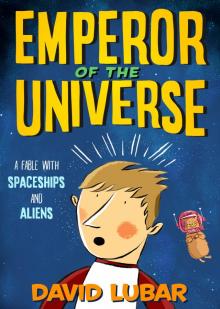 Emperor of the Universe
Emperor of the Universe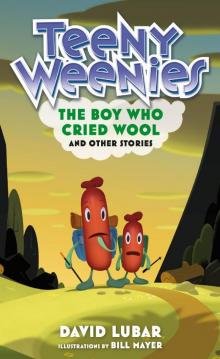 Teeny Weenies: The Boy Who Cried Wool
Teeny Weenies: The Boy Who Cried Wool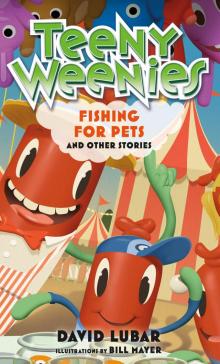 Teeny Weenies: Fishing for Pets
Teeny Weenies: Fishing for Pets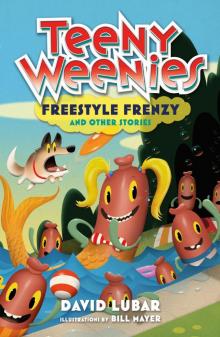 Teeny Weenies: Freestyle Frenzy
Teeny Weenies: Freestyle Frenzy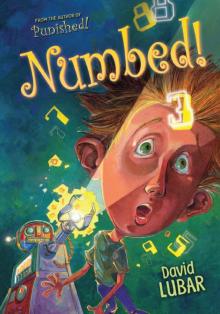 Numbed!
Numbed!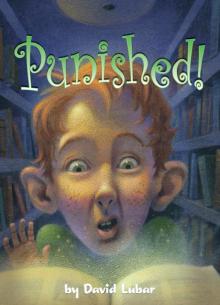 Punished!
Punished!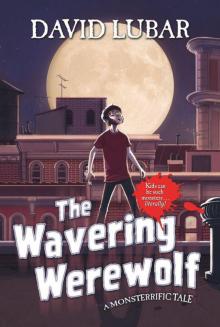 The Wavering Werewolf: A Monsterrific Tale (Monsterrific Tales)
The Wavering Werewolf: A Monsterrific Tale (Monsterrific Tales)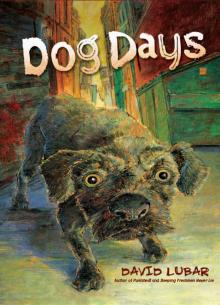 Dog Days
Dog Days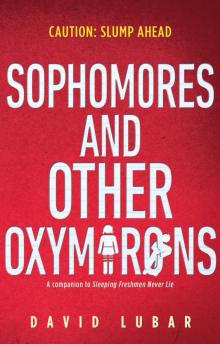 Sophomores and Other Oxymorons
Sophomores and Other Oxymorons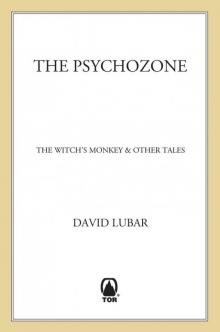 The Psychozone
The Psychozone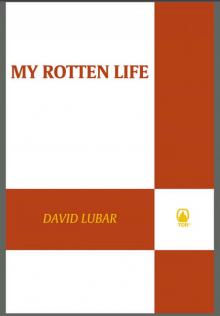 My Rotten Life
My Rotten Life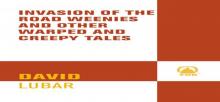 Invasion of the Road Weenies
Invasion of the Road Weenies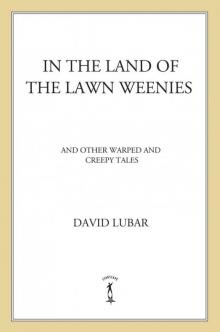 In the Land of the Lawn Weenies
In the Land of the Lawn Weenies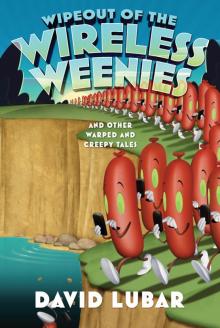 Wipeout of the Wireless Weenies
Wipeout of the Wireless Weenies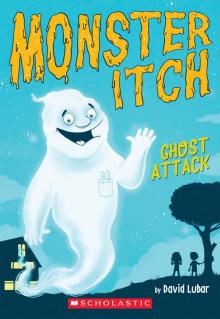 Ghost Attack
Ghost Attack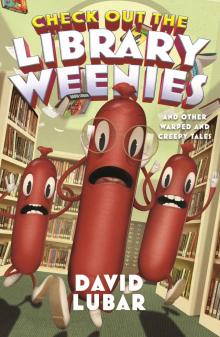 Check Out the Library Weenies
Check Out the Library Weenies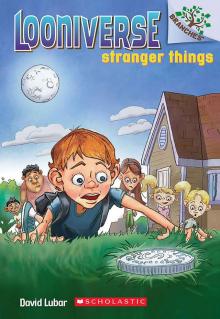 Looniverse #1: Stranger Things (A Branches Book)
Looniverse #1: Stranger Things (A Branches Book)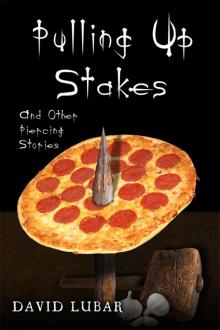 Pulling up Stakes and Other Piercing Stories
Pulling up Stakes and Other Piercing Stories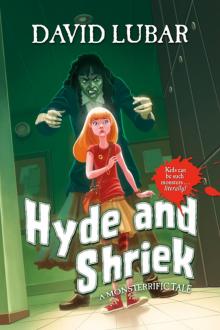 Hyde and Shriek
Hyde and Shriek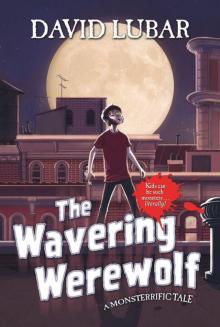 The Wavering Werewolf
The Wavering Werewolf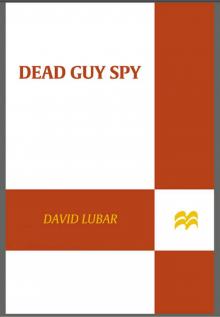 Dead Guy Spy
Dead Guy Spy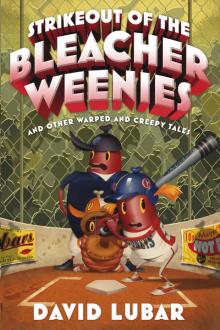 Strikeout of the Bleacher Weenies
Strikeout of the Bleacher Weenies The Big Stink
The Big Stink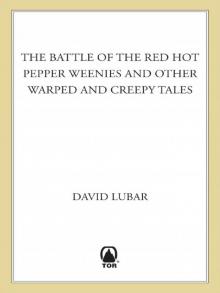 The Battle of the Red Hot Pepper Weenies
The Battle of the Red Hot Pepper Weenies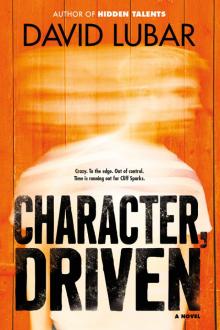 Character, Driven
Character, Driven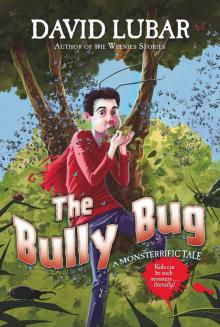 The Bully Bug
The Bully Bug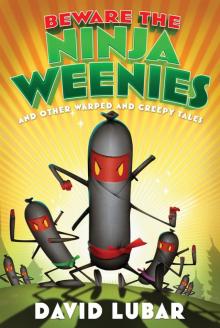 Beware the Ninja Weenies
Beware the Ninja Weenies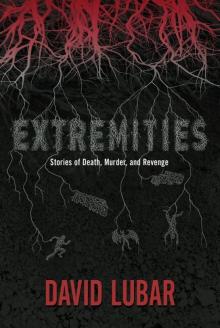 Extremities: Stories of Death, Murder, and Revenge
Extremities: Stories of Death, Murder, and Revenge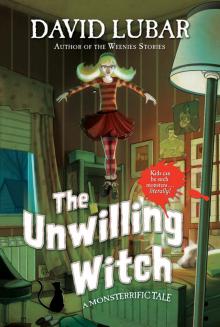 The Unwilling Witch
The Unwilling Witch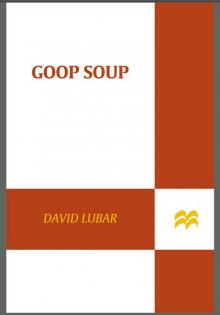 Goop Soup
Goop Soup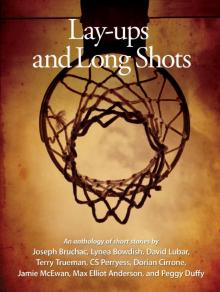 Lay-ups and Long Shots
Lay-ups and Long Shots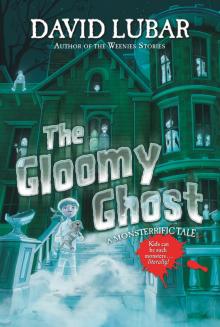 The Gloomy Ghost
The Gloomy Ghost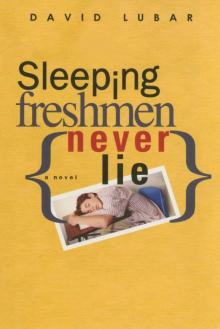 Sleeping Freshmen Never Lie
Sleeping Freshmen Never Lie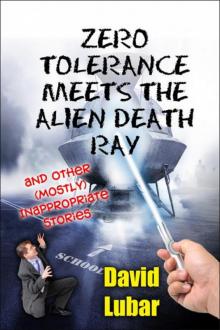 Zero Tolerance Meets the Alien Death Ray and Other (Mostly) Inappropriate Stories
Zero Tolerance Meets the Alien Death Ray and Other (Mostly) Inappropriate Stories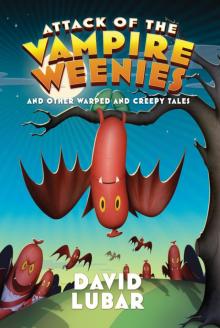 Attack of the Vampire Weenies
Attack of the Vampire Weenies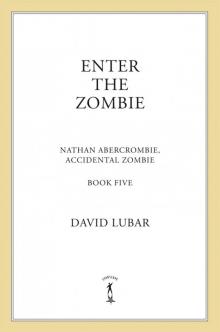 Enter the Zombie
Enter the Zombie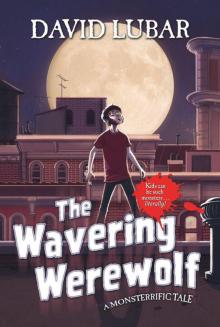 The Wavering Werewolf_A Monsterrific Tale
The Wavering Werewolf_A Monsterrific Tale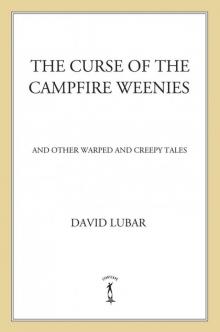 The Curse of the Campfire Weenies
The Curse of the Campfire Weenies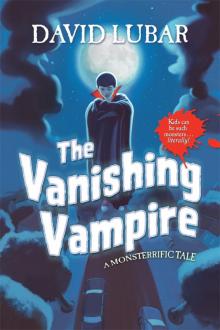 The Vanishing Vampire
The Vanishing Vampire